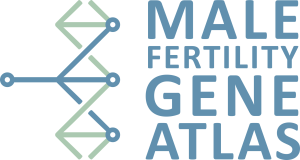Single-cell transcriptomics identifies potential cells of origin of MYC rhabdoid tumors
Graf M, Interlandi M, Moreno N, Holdhof D, Göbel C, Melcher V, Mertins J, Albert TK, Kastrati D, Alfert A, Holsten T, de Faria F, Meisterernst M, Rossig C, Warmuth-Metz M, Nowak J, Meyer Zu Hörste G, Mayère C, Nef S, Johann P, Frühwald MC, Dugas M, Schüller U, Kerl K, 22.03.2022
Abstract
Rhabdoid tumors (RT) are rare and highly aggressive pediatric neoplasms. Their epigenetically-driven intertumoral heterogeneity is well described; however, the cellular origin of RT remains an enigma. Here, we establish and characterize different genetically engineered mouse models driven under the control of distinct promoters and being active in early progenitor cell types with diverse embryonic onsets. From all models only Sox2-positive progenitor cells give rise to murine RT. Using single-cell analyses, we identify distinct cells of origin for the SHH and MYC subgroups of RT, rooting in early stages of embryogenesis. Intra- and extracranial MYC tumors harbor common genetic programs and potentially originate from fetal primordial germ cells (PGCs). Using PGC specific Smarcb1 knockout mouse models we validate that MYC RT originate from these progenitor cells. We uncover an epigenetic imbalance in MYC tumors compared to PGCs being sustained by epigenetically-driven subpopulations. Importantly, treatments with the DNA demethylating agent decitabine successfully impair tumor growth in vitro and in vivo. In summary, our work sheds light on the origin of RT and supports the clinical relevance of DNA methyltransferase inhibitors against this disease.
Graf M, Interlandi M, Moreno N, Holdhof D, Göbel C, Melcher V, Mertins J, Albert TK, Kastrati D, Alfert A, Holsten T, de Faria F, Meisterernst M, Rossig C, Warmuth-Metz M, Nowak J, Meyer Zu Hörste G, Mayère C, Nef S, Johann P, Frühwald MC, Dugas M, Schüller U, Kerl K. Single-cell transcriptomics identifies potential cells of origin of MYC rhabdoid tumors. Nat Commun. 2022 Mar 22;13(1):1544. doi: 10.1038/s41467-022-29152-4.
Publication: https://doi.org/10.1038/s41467-022-29152-4 Repository: Dataset 1: https://www.ncbi.nlm.nih.gov/geo/query/acc.cgi?acc=GSE141532 Dataset 2: https://www.ncbi.nlm.nih.gov/geo/query/acc.cgi?acc=GSE188815 Dataset 3: https://www.ncbi.nlm.nih.gov/geo/query/acc.cgi?acc=GSE188654 Dataset 4: https://www.ncbi.nlm.nih.gov/geo/query/acc.cgi?acc=GSE188816
 Disclaimer
Disclaimer
The publication Single-cell transcriptomics identifies potential cells of origin of MYC rhabdoid tumors by Graf M, Interlandi M, Moreno N, Holdhof D, Göbel C, Melcher V, Mertins J, Albert TK, Kastrati D, Alfert A, Holsten T, de Faria F, Meisterernst M, Rossig C, Warmuth-Metz M, Nowak J, Meyer Zu Hörste G, Mayère C, Nef S, Johann P, Frühwald MC, Dugas M, Schüller U, Kerl K is published under an open access license: https://creativecommons.org/licenses/by-nc-nd/4.0/. Permits non-commercial re-use, distribution, and reproduction in any medium, provided the original work is properly cited.
Curation by the MFGA team Relevant data sets presented in the publication have been identified. If possible, annotations (title, general information, conditions, processed tissue types and processed cell types) have been added based on information from the publication. Data tables and images that provide a good overview on the publication's findings on the data set have been extracted from the publication and/or supplement. If not stated otherwise, images are depicted with title and description exactly as in the publication. Tables have been adjusted to the MFGA table format. Conducted adjustments are explained in the detailed view of the tables. However, titles and descriptions have been adopted from the publication.
Data set 1: Single cell RNA-seq data for Atypical Teratoid Rhabdoid Tumor (ATRT) - activated sonic hedgehog signaling (SHH) and ATRT-MYC oncogene-driven (MYC) samples
Transcriptome: Single-cell RNA-Sequencing
Species
| Species |
|---|
| Human |
| Mouse |
Conditions
| Human phenotype ontology | Participants | Comment |
|---|---|---|
| HP:0034557: Rhabdoid tumor | Rhabdoid tumors are rare aggressive malignancies in infants and young children with a poor prognosis. The most common anatomic localizations are the central nervous system, the kidneys, and other soft tissues. |
Data set 2: ScRNAseq data for Extracranial tumors (eRT) and MYC tumors from the spinal canal (MYC spinal) samples
Transcriptome: Single-cell RNA-Sequencing
Species
| Species |
|---|
| Human |
| Mouse |
Data set 3: Gene expression array data of the tumors derived from the Sox2-cre, Sox2-creERT2 and Rosa26-creERT2 Smarcb1 knockout models generating SHH and MYC RT
Transcriptome: Single-cell RNA-Sequencing
Species
| Species |
|---|
| Human |
| Mouse |
Data set 4: Bulk RNA-seq data of tumors derived from the DPPA3-cre::Smarcb1Fl/+ mice
Transcriptome: Bulk RNA-Sequencing
Species
| Species |
|---|
| Human |
| Mouse |
